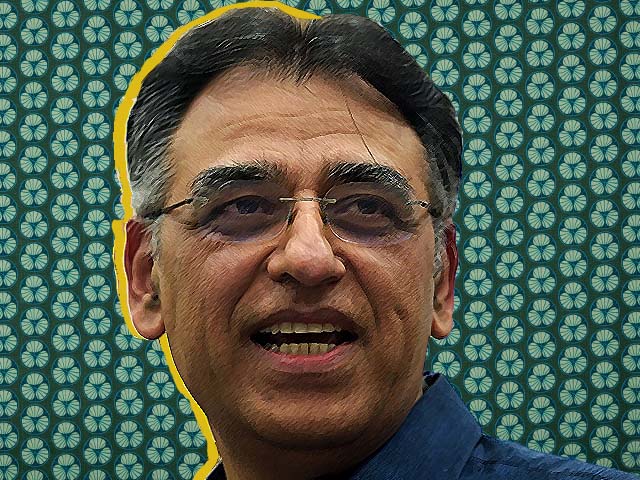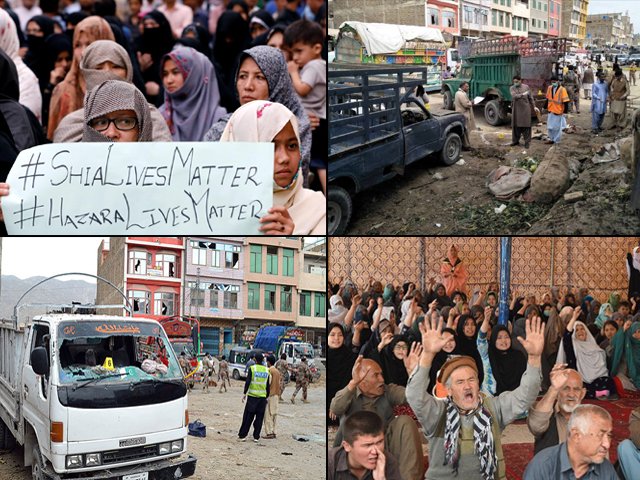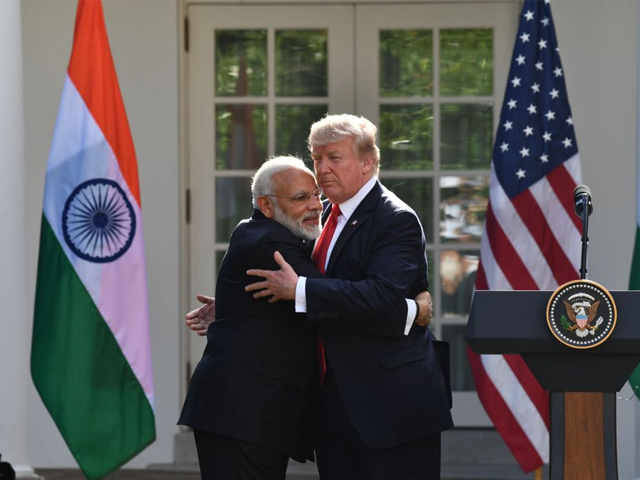
The aftershocks of Zia's power hungry and seemingly ‘religious’ policies have led to the death of more than 40,000 Pakistanis.
Ziaul Haq’s legacy consists less of his own policies and more of the actions successive governments have taken to undo their effects
It's no coincidence that most of the banned outfits in Pakistan today such as LeT and SSP were formed during Zia’s era
Throughout human history, there have been numerous individuals whose existence and actions have adversely affected the course of a nation or the world on a whole. They have been the cause of great pain and suffering directly such as Joseph Stalin with his agricultural program or Adolf Hitler’s war on Jews and the minorities of Germany and later on, the rest of the world.
Pakistan too has had its fair share of such individuals but none of them stand out in comparison to the man who sowed the seeds of dissension, discord, sectarianism and extremism in our country – General Ziaul Haq.
On the 29th death anniversary of this man, considered by most to be the worst thing to happen to Pakistan including myself, I think it’s necessary to remind everyone of his infamous accolades. With time and with the army’s efforts to exterminate terrorists within Pakistan, people have perhaps started to forget why we are in this extremist quagmire in the first place. If we don’t remember our history, we are bound to make the same mistakes all over again, which we, unfortunately, are still doing in some facets.
General Zia was a career army man serving in the British Indian Army and then in the Pakistan Army. He brought his fighting skills to the table wherever he served. Considered a man who ‘got things done’, he was elevated to the chief of army staff position by Zulfikar Ali Bhutto after a recommendation by some of his friends in the Gulf. However, Zia’s supposedly subservient demeanour turned hawkish once he deposed Bhutto and took him to the gallows. A slight nudge in this direction was given by some of Zia’s American friends such as Henry Kissinger – however, this has been relegated to the books of conspiracy theories.
Zia’s issues with Bhutto made him unpopular, therefore as soon as the Soviet-Afghan war started, it was only a matter of time that he was bound to become involved in it. Bhutto’s pandering to the religious classes through his Islamic Ummah unification and Prohibition laws had already given them a taste of power in the social fabric of Pakistan. Zia cried foul and clandestinely supported the Mujahideen, firstly by himself and then through the help of the CIA and Saudi Intelligence. The result ended up in Afghanistan’s favour but the fallout and aftereffects were staggering for Pakistan.
By the end of the war, approximately three million Afghans had become refugees within Pakistan alone. The Afghan refugee influx not only heightened the issue of poverty and scarce resources in Pakistan, it also brought along the two worst scourges still besieging the modern Pakistani society – heroin and the Kalashnikov rifle. Being the spearhead of the world’s response to Soviet occupation, Zia’s Pakistan oversaw the funding, training and arming of thousands of militants. During the course of the Afghan war, Pakistan trained over 100,000 fighters for the cause. Thus when the drugs and weapons proliferated, it was not seen as a negative, rather something which was being used to successfully resolve the conflict at hand. With the availability of smuggled and awarded weapons, radical groups could now easily arm themselves with limited financing.
The first seeds of sectarianism and extremism were also sown during this conflict, where extremist ideology was popularised by the ruling clique and their western allies. Since a moderate Muslim individual would not be as determined or ruthless enough against the Soviets, financial favours were bestowed upon the more zealous and fanatical groups. The madrassas indoctrinated the students and laymen in the nuances of jihad in such a convoluted way that the individual would naturally prefer violence to more peaceful solutions.
Resultantly, this strategy worked in Afghanistan but for a short term. However, when the Soviets withdrew, these violence prone, religiously fanatical individuals returned home. Some amongst them stayed to fight alongside the militant groups who later became the Taliban and declared Afghanistan an Islamic Emirate.
Militant teachers and sympathisers stood in awe of the Taliban’s declaration and dreams of a similar Islamic Republic in Pakistan were being dreamt during daytime. Since the Taliban and their teachers in Pakistan had extremist views regarding the interpretation and execution of the Shariah, zealotry and intolerance started growing exponentially within Pakistani society. This also led to the chants of “Ameerul Momineen Ziaul Haq” ringing in the Parliament House.
It is no coincidence that almost all of the extremist outfits banned in Pakistan today such as Lashkar-e-Taiba (LeT), Sipah-e-Sahaba Pakistan (SSP) – now Ahlus Sunnah wal Jamaah (ASWJ) – and Jaish-e-Muhammad (JeM) were formed during Zia’s era. These groups were not only prone to and comfortable with violence, but they also believed that the goal of forming an Islamic government in Pakistan could only be achieved through the marginalisation and elimination of religious minorities and other non-compliant sects. This view was tightly bound in their belief that the only ‘true version’ of Islam was the one they practiced and thus all others could be either be declared Munafiq (hypocrite) or Kafir (non-believer). These labels allowed the zealots the religious leverage needed to sanction violence against them. Since their views were ideologically similar to those of the Taliban, these groups cooperated and coordinated long after the end of the Soviet-Afghan conflict.
For the sake of political and religious righteousness and for the unabated supply of arms and currency, these militants expediently overlooked the fact that Zia, who was in command of the country, had made his bones by killing Palestinian freedom fighters in Jordan during the Black September of 1970 to appease the Jordanian and Israeli establishments.
At the time of Zia’s death, Pakistan was left with factories churning out ‘pseudo-religious mercenaries’, weak democratic institutions and a subservient judiciary. The aftershocks of his power hungry and seemingly ‘religious’ policies have led to the death of more than 40,000 Pakistanis. Anyone who looks back at Zia’s era – apart from those who benefitted from it such as certain ‘individuals and political parties’ in the current government setup – can easily recall it as a time of bans, public flogging and sectarian marginalisation. His legacy consists less of his own policies and more of the actions and operations successive governments have undertaken to undo their effects. I guess the best words about him were said by Habib Jalib, the people’s poet who had to bear the brunt of Zia’s oppression, in his famous poem Zulmat ko Zia:
“Hashr bapa hai ghar ghar mein, dum ghut’ta hai gumbad-e-bedar mein,
Ik shakhs kay hathon muddat se, ruswa hai watan duniya bhar mein.
Iblees numa insanon ki, aye dost sana kia likhna
Zulmat ko Zia, sarsar ko saba, banday ko khuda kya likhna”
(Calamity stricken is every home, suffocating is the air inside my home,
Because of the misdeeds of one person, our motherland is being ridiculed in the world.
How can I utter words of praise for such a devil in human form
Darkness called light, the hot desert wind called a morning breeze,
How can I write that a human being is God?)




COMMENTS (12)
Comments are moderated and generally will be posted if they are on-topic and not abusive.
For more information, please see our Comments FAQ